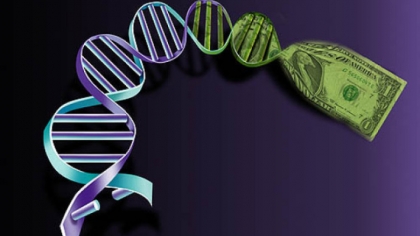
Recently, the Supreme Court heard an case over patenting genes. The case, AMP V. Myriad Genetics was hotly contested over whether someone can patent a gene.
Do you own your own genes? That was the question of many of the judges. While, they seemed to all argue that you own your own genes, can you own a gene that no one has but could have in the future? The American Civil Liberties Union thinks no, and so they challenged the Salt-Lake City based Myriad Genetics who claims to own two such genes. The plantiffs content the gene patents are unconstitutional, because the product of nature cannot be patented.
"The care available to patients should not be restricted because the naturally occurring building blocks of human biology have been inappropriately patented. Opportunities for scientific research and medical care based on human genes must remain available to all and exclusive to none," said Jeremy Lazarus, president of the American Medical Association, in a statement prior to oral argument. The patented genes under consideration in the Supreme Court case are associated with breast and ovarian cancer. Using a patient's blood sample, scientists can extract these two genes, known as BRCA1 (frequently pronounced "braca one") and BRCA2 ("braca two"), isolating them from their cellular structure.
What should be done?
Patented genes could help end many diseases. In reality, genes will almost certainly be patented in the future. Genes hold many of the answers to many of our problems. Ultimately if there is demand for a cure, in this case genes that cure disease, then people will pay for it and therefore it becomes legal.
What do you think? Should the courts rule in favor or against patents like this? What are the long-term positives and negatives of this? Are Humans ready for large-scale genetic manipulation? Can the Human body really be patented? Comment below!













